Archive for Language and food
December 21, 2018 @ 8:18 am· Filed by Victor Mair under Language and food, Neologisms, Translation
From time to time during the past half century or so, I've heard of a food product called seitan. Because the name sounds Japanese and it was associated with a natural food store in Cambridge, Massachusetts that I frequented called Erewhon (see here for the 1872 satirical Utopian novel by Samuel Butler whence it got its name) that was founded by Japanese macrobiotic advocates (see below for a bit more detail), I always assumed that it was both a Japanese word and a Japanese product. As we shall find later in this post, I was (sort of) mistaken on both counts.
Read the rest of this entry »
Permalink
December 13, 2018 @ 10:15 pm· Filed by Victor Mair under Borrowing, Language and food, Language and politics
Taiwanese master baker Wu Pao-chun 吳寶春 with a loaf of his famous bread:
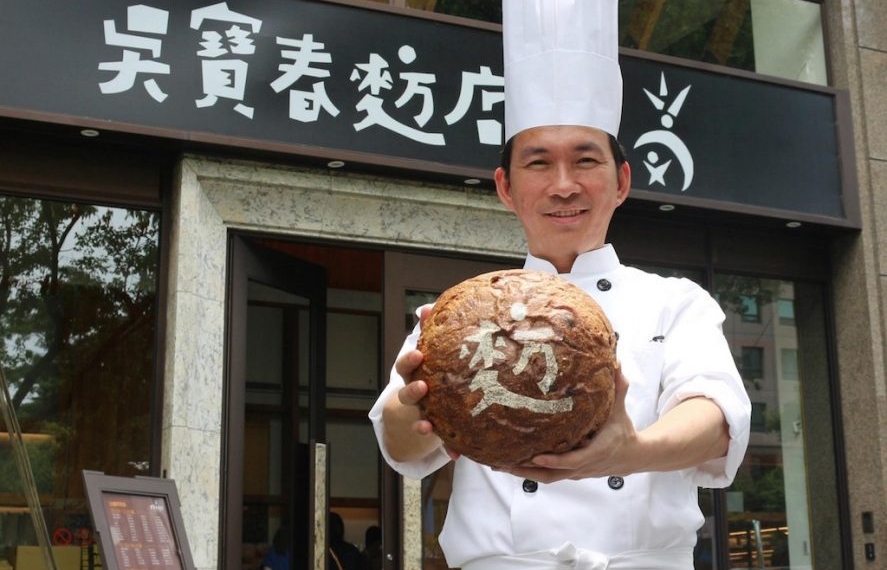
Read the rest of this entry »
Permalink
November 29, 2018 @ 2:55 pm· Filed by Victor Mair under Language and food, Language and gender, Names, Transcription
A tasty visual pun found on Facebook:
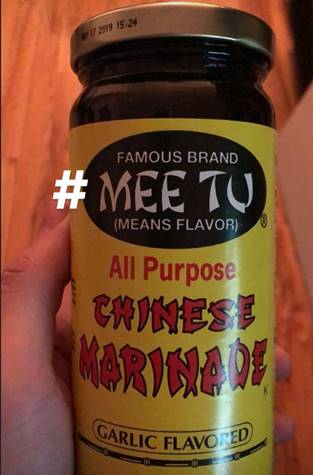
(originally posted by Wayne Hudson)
Read the rest of this entry »
Permalink
November 15, 2018 @ 10:55 am· Filed by Victor Mair under Borrowing, Etymology, Language and food, Transcription
Earlier this week (11/12/18), under the rubric "Of knots, pimples, and Sinitic reconstructions", we discussed the origins and meaning of the fascinating Sinitic word "geda" ("pimple; knot; lump"). That, in turn, was prompted by our initial acquaintance with "geda" in "Too hard to translate soup" a couple of months before (9/2/18). After considering a possible source in Indo-European, Turkic, Tungusic, and Mongolic, there seemed to be a bit of momentum in favor of the last named family.
Since "geda" first appeared in a significantly large number of citations in written Sinitic during the Mongol Yuan Dynasty (1271-1368) about a thousand years ago, it was thought advisable to look at an earlier stage of Mongolic rather than simply referring to modern Mongolian forms. So I thought of asking Daniel Kane, a rare specialist in Khitan, which is generally considered to be a Para-Mongolic language, whether he had any thoughts on the matter.
Read the rest of this entry »
Permalink
November 14, 2018 @ 10:17 am· Filed by Victor Mair under Language and food, Lost in translation
Tweet by Dan Okrent:
Read the rest of this entry »
Permalink
November 14, 2018 @ 9:16 am· Filed by Victor Mair under Diglossia and digraphia, Language and food, Puns, Typography
Tweet by Noelle Mateer:
Read the rest of this entry »
Permalink
November 10, 2018 @ 3:21 pm· Filed by Victor Mair under Borrowing, Language and food, Language and literature, Translation
Bill Benzon spotted this on Facebook:

Read the rest of this entry »
Permalink
November 8, 2018 @ 10:34 am· Filed by Victor Mair under Language and advertising, Language and business, Language and food, Transcription
Brand-name transliteration (in Embarcadero Center, San Francisco), courtesy of Nancy Friedman:
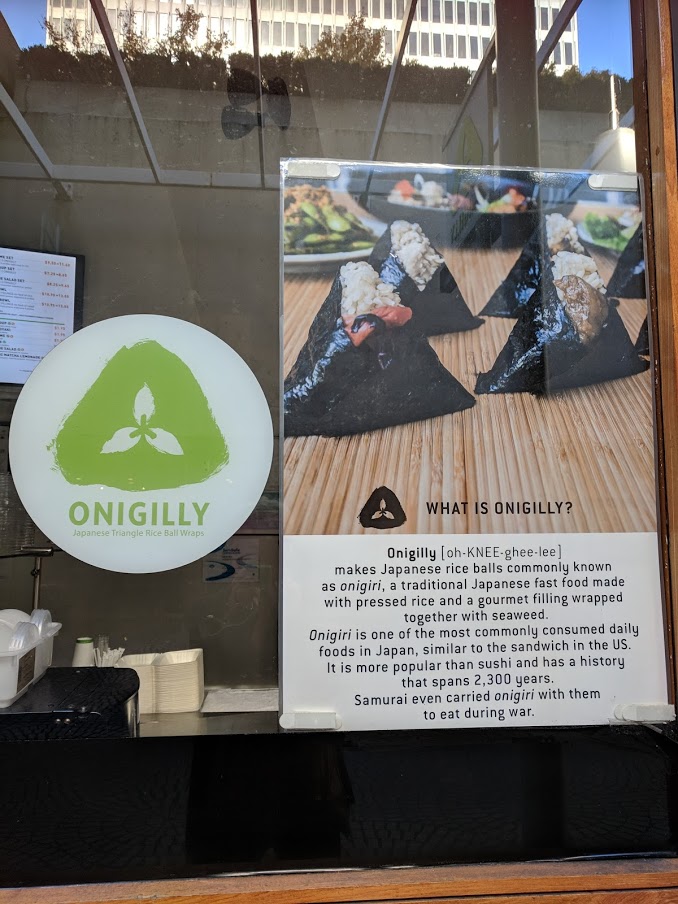
Read the rest of this entry »
Permalink
October 13, 2018 @ 4:10 pm· Filed by Victor Mair under Language and food, Topolects, Vernacular
Here is a photograph of a paper placemat Tong Wang found in a restaurant serving Beijing dishes that is named "Sea Bowl Restaurant" (Hǎiwǎn jū 海碗居):

Read the rest of this entry »
Permalink
October 13, 2018 @ 3:58 pm· Filed by Victor Mair under Language and advertising, Language and business, Language and food, Writing systems
From Nikita Kuzmin:
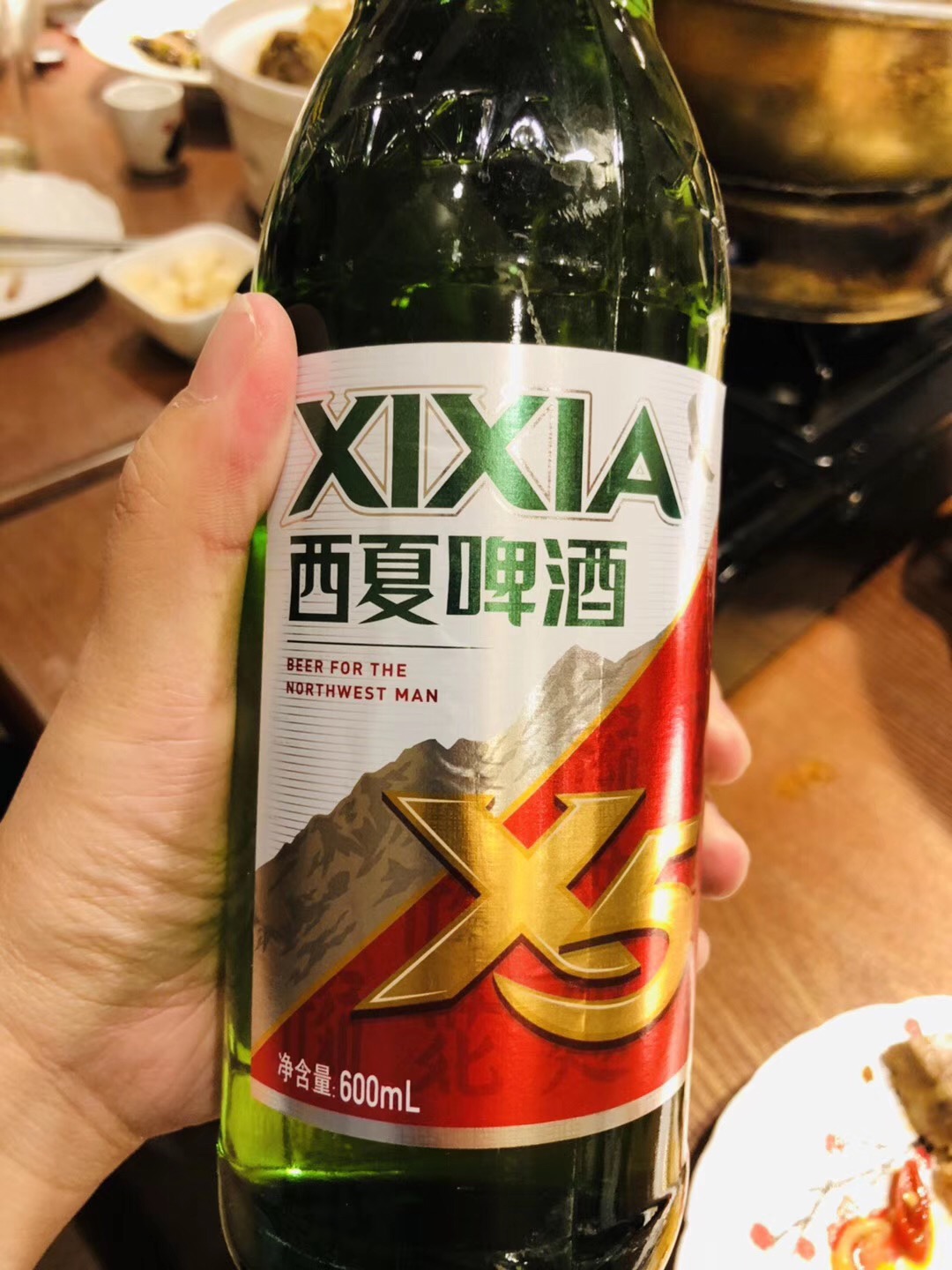
Read the rest of this entry »
Permalink
October 8, 2018 @ 12:38 am· Filed by Victor Mair under Language and advertising, Language and biology, Language and food, Transcription
From a correspondent in Taiwan:

Read the rest of this entry »
Permalink
September 22, 2018 @ 12:51 pm· Filed by Victor Mair under Borrowing, Language and food
When I was in Hamburg, Germany a few months ago, I was pleasantly surprised to come upon a pastry shop that sold egg tarts warm out of the oven. They were just divine! I think they were called pastéis de nata from the term used for them in Portugal, which seems to be the homeland (or one of the homelands) of this heavenly dessert. Here the word pastéis is translated into English as "pastels", but it's something altogether different from the art medium, and it has a broad spectrum of manifestations as different types of pies and cakes.
Read the rest of this entry »
Permalink
September 17, 2018 @ 10:21 pm· Filed by Victor Mair under Language and food, Lost in translation
Menu items at the Asia Bistro, Marriott Hotel, Suzhou, China, courtesy of Thomas Malphus:
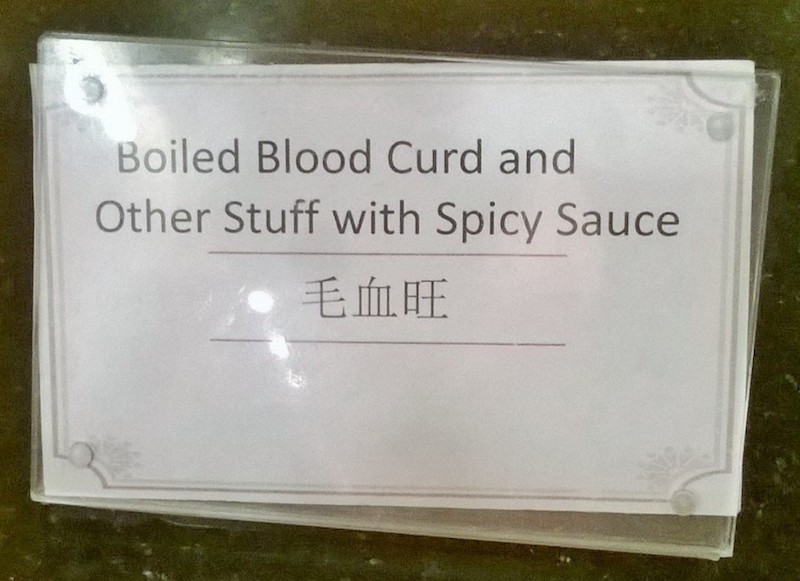
Read the rest of this entry »
Permalink







